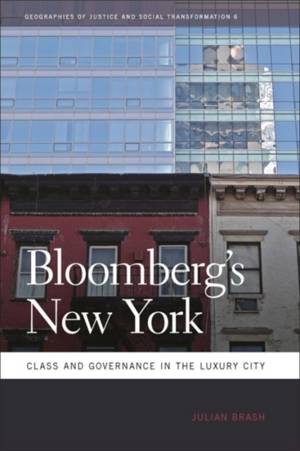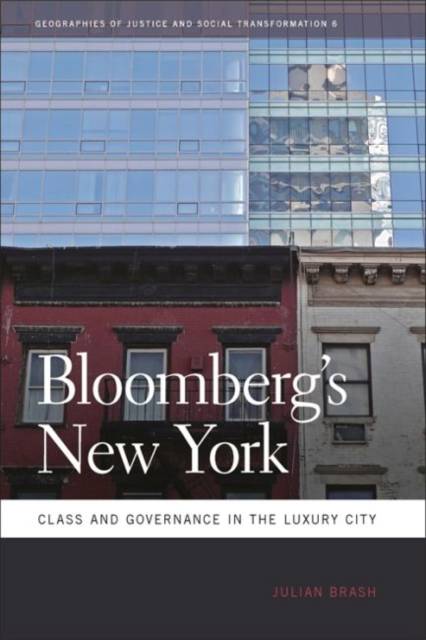
Door een staking bij bpost kan je online bestelling op dit moment iets langer onderweg zijn dan voorzien. Dringend iets nodig? Onze winkels ontvangen jou met open armen!
- Afhalen na 1 uur in een winkel met voorraad
- Gratis thuislevering in België vanaf € 30
- Ruim aanbod met 7 miljoen producten
Door een staking bij bpost kan je online bestelling op dit moment iets langer onderweg zijn dan voorzien. Dringend iets nodig? Onze winkels ontvangen jou met open armen!
- Afhalen na 1 uur in een winkel met voorraad
- Gratis thuislevering in België vanaf € 30
- Ruim aanbod met 7 miljoen producten
Zoeken
€ 205,45
+ 410 punten
Uitvoering
Omschrijving
New York mayor Michael Bloomberg claims to run the city like a business. In Bloomberg's New York, Julian Brash applies methods from anthropology, geography, and other social science disciplines to examine what that means. He describes the mayor's attitude toward governance as the Bloomberg Way--a philosophy that holds up the mayor as CEO, government as a private corporation, desirable residents and businesses as customers and clients, and the city itself as a product to be branded and marketed as a luxury good.
Commonly represented as pragmatic and nonideological, the Bloomberg Way, Brash argues, is in fact an ambitious reformulation of neoliberal governance that advances specific class interests. He considers the implications of this in a blow-by-blow account of the debate over the Hudson Yards plan, which aimed to transform Manhattan's far west side into the city's next great high-end district. Bringing this plan to fruition proved surprisingly difficult as activists and entrenched interests pushed back against the Bloomberg administration, suggesting that despite Bloomberg's success in redrawing the rules of urban governance, older political arrangements--and opportunities for social justice--remain.Specificaties
Betrokkenen
- Auteur(s):
- Uitgeverij:
Inhoud
- Aantal bladzijden:
- 344
- Taal:
- Engels
- Reeks:
- Reeksnummer:
- nr. 6
Eigenschappen
- Productcode (EAN):
- 9780820335667
- Verschijningsdatum:
- 15/01/2011
- Uitvoering:
- Hardcover
- Formaat:
- Genaaid
- Afmetingen:
- 152 mm x 229 mm
- Gewicht:
- 666 g

Alleen bij Standaard Boekhandel
+ 410 punten op je klantenkaart van Standaard Boekhandel
Beoordelingen
We publiceren alleen reviews die voldoen aan de voorwaarden voor reviews. Bekijk onze voorwaarden voor reviews.











